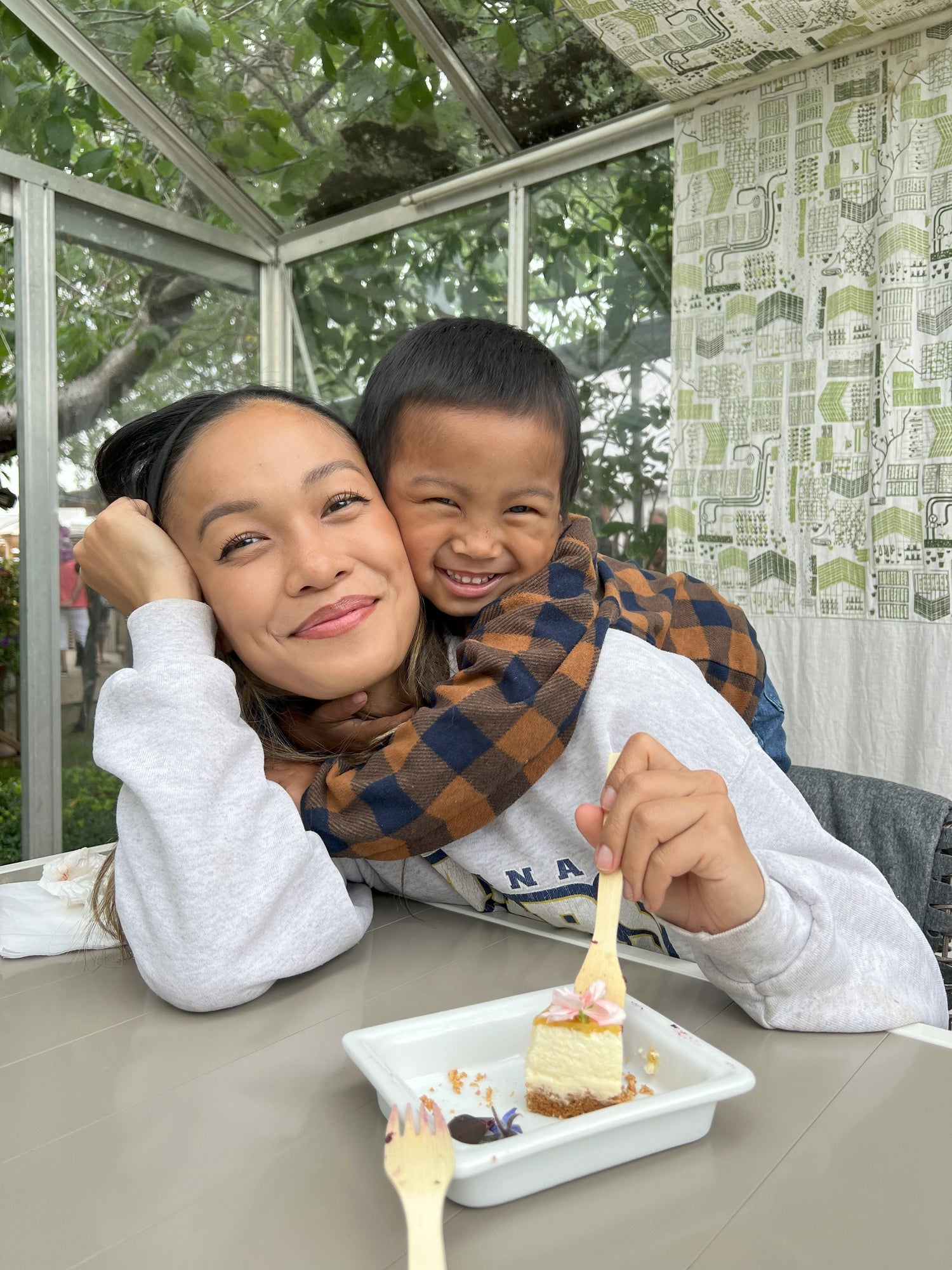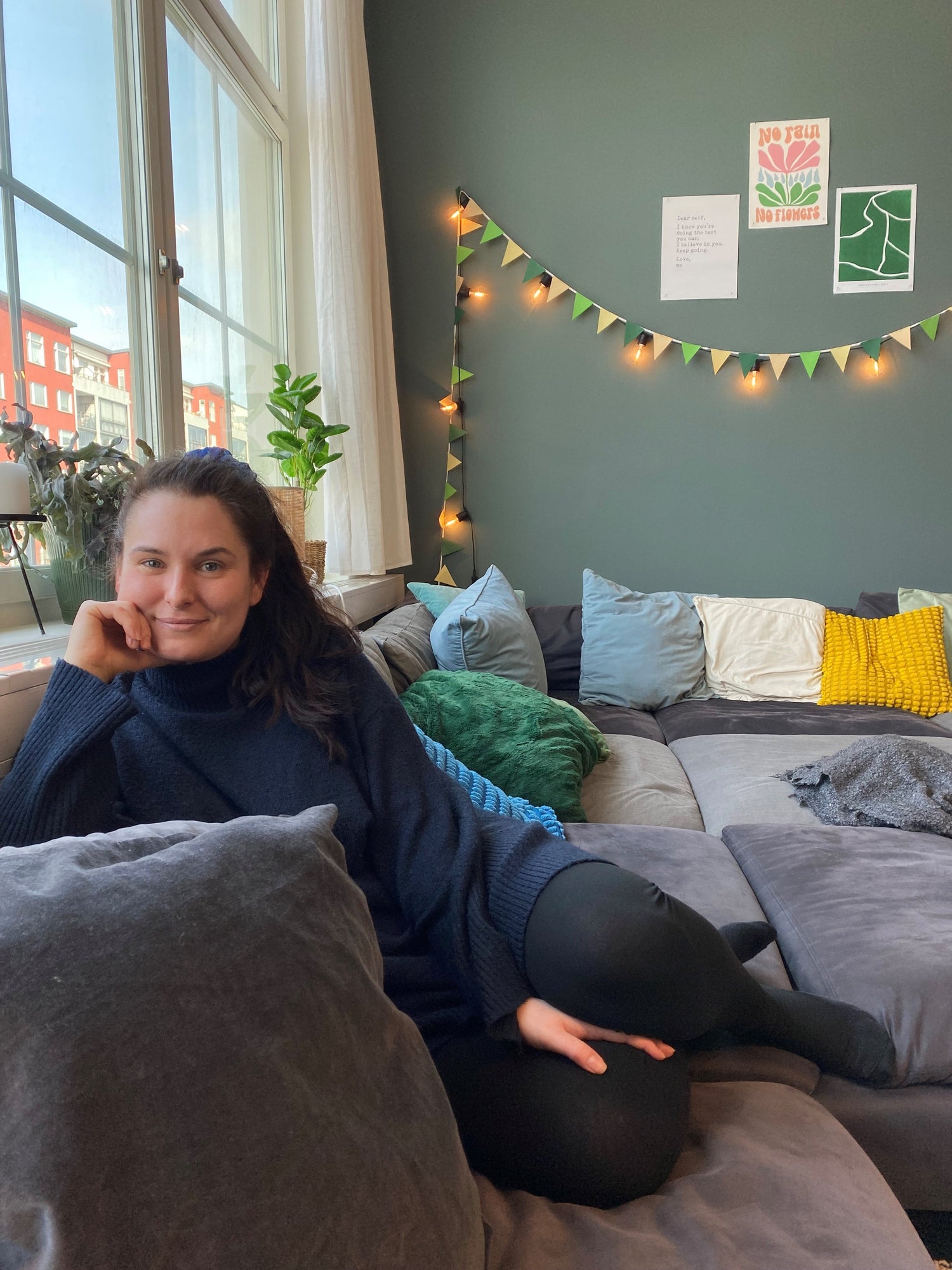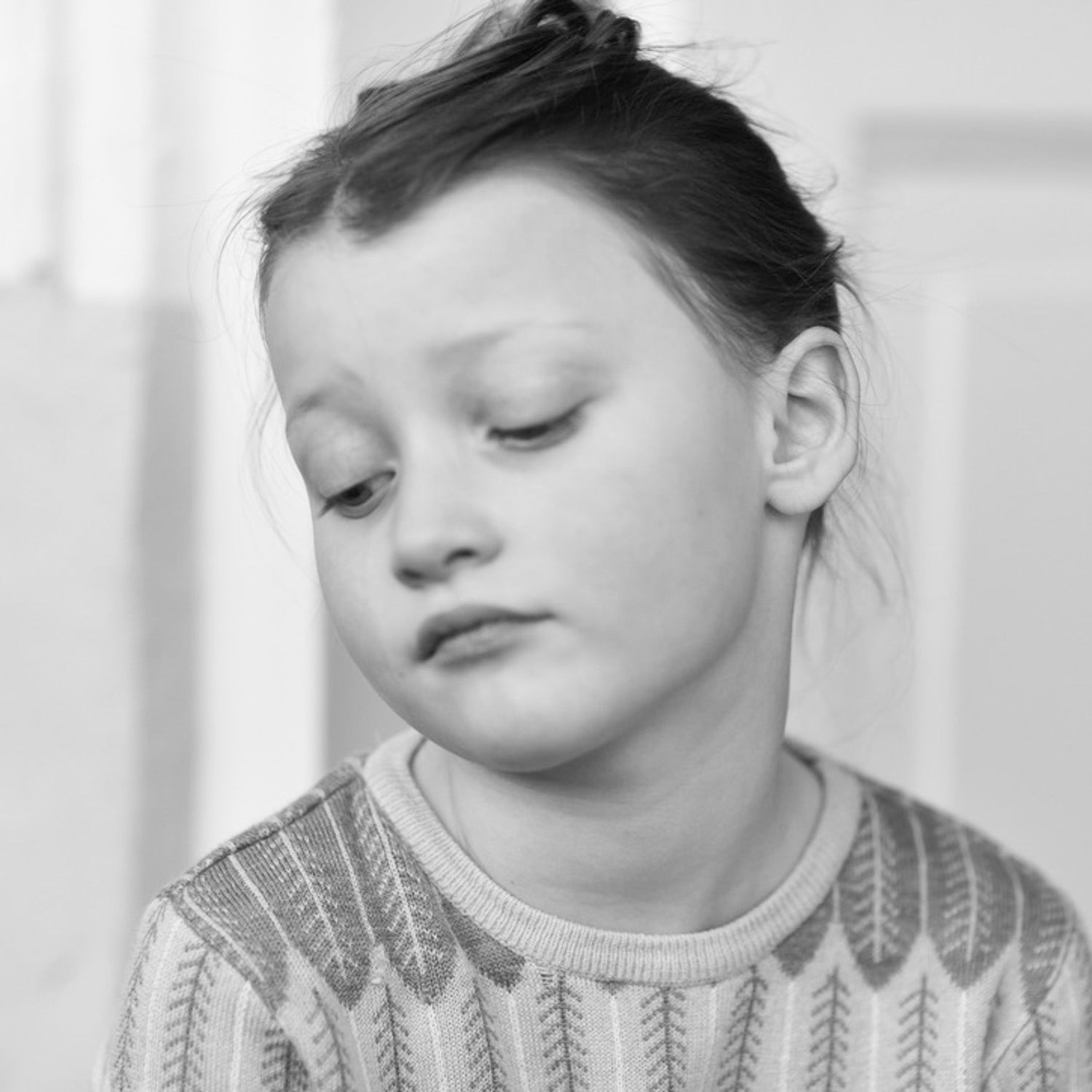Children's rights organization Dandelion child has worked since 2005 to improve the living conditions of the 500,000 children in Sweden with parents who have an addiction, a mental illness or who expose them to violence. In short, a children's rights organization with a holistic approach to vulnerable children, so-called dandelion children.
Sofia has met with Denise Madsen, founder and support manager, to hear more about the organization and how to support vulnerable children and what you can do as an adult if you think a child is being harmed.

Hi Denise! Would you like to tell us a little about Dandelion Children?
Maskrosbarn has been around for 19 years and is a children's rights organization that works with young people who have parents with substance abuse, who suffer from mental illness or live in violent homes.
One of the things that makes Maskrosbarn unique is that the children come here on their own initiative. They decide for themselves whether they need support. In other places, a referral, decision or diagnosis is often needed for vulnerable children to receive help. In these cases, the basis is the care or social services' routines, and not necessarily what the child himself wishes.
We at Maskrosbarn have offices in Stockholm, Malmö and Gothenburg and have about 30 employees and about 190 involved in the support activities. Maskrosbarn meets around 1000 children a year and our target group consists of about 500,000 children. That's how many children live with this type of problem, 5-6 students in each class. It is a huge social problem.!
In many ways things have gotten better, but it takes many years to push through legal changes and social reforms. These are slow processes. Even though there is more talk about it in society in general, the children, the dandelion children, experience the same guilt, shame and loneliness in their life situation.
How does Dandelion Children support the children, or what is included in your work?
We at Dandelion child does many different things that range from opinion-forming to practical work with young people. With opinion-forming and advocacy work, we collaborate with authorities and social services. We are a referral body and write reports. Then we have the important support work with young people. Maskrosbarn has always worked with both advocacy and support, which makes us quite unique.
Many other organizations and associations either only work with influence and do not have as much contact with the target group they work for, or only with support but cannot then present the experiences of the children in a structured way. Since Maskrosbarn has continuous contact with young people through our activities, it is natural for us to also function as their voice.
How do you feel that working with children has changed during your 19 years in the profession?
In the almost 20 years we have been active, the conversation in society has changed. When we started, there was no association that was driving this issue, but now there are more. In general, I think there is more talk about this target group – so-called dandelion child. The Convention on the Rights of the Child has become law and there is more talk about children's right to support. In many ways it has become better, but it takes many years to push through legal changes and social reforms. These are slow processes. Even though there is more talk about it in society in general, the children's experience of guilt, shame and loneliness in their life situation is the same.
You started Dandelion child together with your friend and co-founder Therése during high school. Tell us about your journey!
I met my Therése on the first day of high school in a brand new school where none of us knew anyone. She “cheered” me up and we went for coffee after the first day of school. Then she told me that if we are going to be friends now, there is something you need to know about me. She then told me about her home situation and about her mother who was bipolar and alcoholic.
It was the first time I heard someone my age being so open about their home situation, and also spoke about it completely unsentimental. She was straightforward and explained her situation in a fairly neutral way and without guilt. Then it immediately became easy for me to talk about my home situation, which consisted of a mentally ill and violent mother.
We both had a very turbulent high school time because of this, with both social services and the police involved. Having a friend who was in the same situation and who I could talk to was invaluable. Having someone to call and talk to them when it happens, in the middle of the night or on the weekend. That's usually when it's the hardest.
Dandelion Children has dress-up clothes, games and other activities that the children who come to visit can use.
There are no shoes allowed in the office, which creates a very familiar atmosphere. Like coming home to a new friend.

So your friendship made you strong together, and also sparked the idea that others need the same support?
Yes, our home situations calmed down a bit towards the end of high school. We then began to reflect on how little, and how bad, support we had received. Basically non-existent.
In the third year we had to write a special project, and then we wanted to look more closely at our group. dandelion child- and investigate what kind of support was available and what it was like for this group. Then we decided to start a support group so that others in the same situation could meet others.
In connection with the work, we encountered many obstacles for our small, newly formed group. Adults said we should let the adults handle this and thought we were too young. Others who worked with young people were afraid that we would compete with them and “take” their young people.
This only fueled our determination to start something good that was driven by the actual needs of young people.
Dankrosbarn has three legs: addiction, violence and mental illness. Is it different from other organizations? Why did you choose all three?
The three different problem areas are so integrated into each other that it becomes difficult to distinguish them. For us, it has been important not to separate these groups from each other. Many children who live with parents with addictions are also exposed to various types of violence and children with parents who suffer from mental illness may also have an addiction. If you choose to treat children based on one of these problem areas, you often miss the whole picture.
Many of our young people describe “the important adult”. It could be a sports teacher, a friend's mother, a coach or maybe an uncle who saw them. Who dared to ask things and who dared to approach.

What can you do as an outside adult to help children who live with a parent who has mental illness, substance abuse or violence?
Many of our young people describe“the important adult”. It could be a physical education teacher, a friend's mother, a coach or maybe an uncle who saw them. Who dared to ask things and who dared to approach. Many describe that it often felt as if many people knew, but no one dared to ask how it actually was.
The most important lesson from me is to dare to ask, and dare to ask many times. Dare to follow up, follow up and follow up again. Then the child knows that there is someone who cares. The child may not dare to tell the story the first time, but maybe the tenth time.
If you ask and are told, what do you do with that trust? How should you react as an adult?
If you ask, and gain the trust that the young person is actually telling you, then the natural reaction may be to want to talk to the parents. There you should think once or twice about whether it will really land on good ground and whether it could negatively affect the child.
Many adults, on the other hand, do not want to break the child's trust and tell anyone else, but that can also mean that the young person does not get help. That is where you have to decide how serious the problem is. There are other actors that you can contact in the first place in addition to the child's parents. This could be the school counselor, the youth clinic and if you are very worried, you should do concern report to social services.
Not everyone is aware that you have a duty to report a concern if you suspect something is not right. You can do this anonymously, and also call social services for advice.
If you make a report of concern, it is important to tell the young person beforehand, so that they receive information about what will happen next and understand what the process will look like.
The most important lesson from me is to dare to ask, and dare to ask many times. Dare to follow up, follow up and follow up again. Then the child knows that there is someone who cares. The child may not dare to tell the story the first time, but maybe the tenth time.






